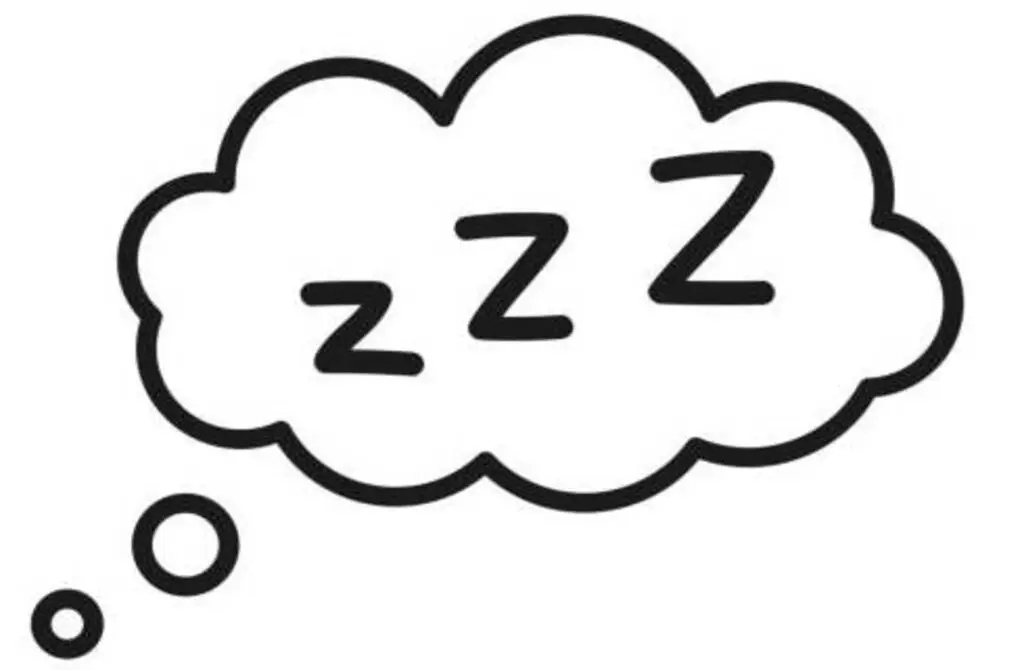
Sleep is a fundamental part of life, but most people don’t give much thought to it. We’ll dive into the stages of sleep, its functions, and the mind-boggling neuroscience behind it all.
The Stages of Sleep
NREM Stage 1: You’re just dipping your toes into the sleep pool. It’s light sleep, similar to zoning out, but with your eyes closed
NREM Stage 2: Things get a bit deeper. Your brain starts to produce sleep spindles ( funky little bursts of brain activity). Your body temp drops, heart rate slows, and you’re more relaxed.
NREM Stage 3: This is deep sleep, the kind that’s hard to wake up from. It’s also called slow-wave sleep because your brain waves are super slow and synchronized.
REM Sleep: Now things get weird. Your brain activity ramps up, and you start dreaming. Your eyes move rapidly (hence Rapid Eye Movement), but your body is paralyzed to stop you from acting out those dreams (most of the time).
A typical night’s sleep isn’t just one smooth ride through these stages. It’s more like a rollercoaster, looping through the stages multiple times, each cycle lasting about 90 minutes. So, you go through this stage-juggling act about 4-6 times a night. You should time your alarms to be at the end of a sleep cycle, while you’re in light sleep.
Why do we Sleep?
Sleep is when your muscles repair, tissues grow, and proteins synthesize. It’s when your body fixes itself from all the wear and tear of the day. Ever tried to learn something new on no sleep? It’s like trying to juggle while riding a unicycle on a tightrope. Sleep helps consolidate memories and aids learning. Your brain sifts through the day’s events, decides what to keep, and files it away neatly. Sleep-deprived people are the grumpy cats of humanity. Lack of sleep messes with your mood and emotional stability. Get enough sleep, and you’re a calm, rational human being.
The Science of Sleep
Let’s dive into the brain’s chemistry set. Neurotransmitters are the chemicals that help transmit signals in the brain, and they play a huge role in sleep. Neurotransmitters are chemical messengers in the brain that allow neurons to communicate with each other. They are essential for the body to function and enable the brain to perform a variety of functions.
Serotonin: Serotonin is often called the body’s “feel good” chemical. Low serotonin levels in the brain are thought to contribute to depression, and serotonin is a primary treatment target for many psychiatric and neurological disorders. Serotonin plays a role in the quality of sleep. It also helps control bowel function and protects the gut.
Dopamine: Dopamine acts on areas of the brain to give you feelings of pleasure, satisfaction, and motivation. Dopamine also has a role to play in controlling memory, mood, sleep, learning, concentration, movement, and other body functions.
Norepinephrine: A neurotransmitter of the brain that plays an essential role in the regulation of arousal, attention, cognitive function, and stress reactions. Norepinephrine helps maintain sleep-wake cycles, helping you wake up in the morning and focus throughout the day.
Effects of not Sleeping
Ever feel that overwhelming need to sleep after pulling an all-nighter? That’s sleep pressure, mainly thanks to adenosine, which builds up in your brain the longer you stay awake. Sleep clears it out, resetting the pressure.
Circadian Rhythms
Your body has its own internal clock, the circadian rhythm, which tells you when to sleep and wake up. It’s influenced by external cues like light and temperature. Mess with it, and you’re in for a world of drowsiness.
Sleep Disorders
Insomnia
Can’t sleep? That’s insomnia. It can be caused by stress, anxiety, or even bad sleep habits. Treatments range from cognitive behavioral therapy to good old-fashioned counting sheep.
Sleep Apnea
Ever heard someone snore so loudly it sounds like a bear is hibernating in the next room? They might have sleep apnea, where breathing stops and starts during sleep. It’s serious and can lead to other health issues.
Narcolepsy
Imagine falling asleep mid-sentence. That’s narcolepsy. It’s a neurological disorder where you can’t control sleep-wake cycles, leading to sudden sleep attacks.
Parasomnias
These are the weird, often spooky things that happen during sleep, like sleepwalking, night terrors, and REM sleep behavior disorder (where you act out your dreams). It’s like your body is still awake while your brain is asleep.
Brain Health
Sleep isn’t just about resting your body; it’s crucial for brain health too. Sleep is vital for neuroplasticity – the brain’s ability to reorganize itself. It helps form new neural connections, aiding learning and memory. During sleep, your brain clears out waste products, thanks to the glymphatic system. It’s like a nightly garbage truck for your brain, preventing the build-up of harmful substances. Sleep disturbances are linked to neurodegenerative diseases like Alzheimer’s and Parkinson’s. Poor sleep can accelerate the accumulation of brain plaques, making these conditions worse.
Impact of Modern Lifestyle on Sleep
Our modern lifestyle is like a constant enemy of good sleep. Blue light from screens messes with your circadian rhythm, tricking your brain into thinking it’s daytime. This delays sleep onset and reduces sleep quality. Pro tip: Try a tech curfew before bed. Stress is like a sleep kryptonite. It ramps up your body’s stress hormones, making it hard to relax and fall asleep. Practicing relaxation techniques can help. Good sleep hygiene is all about creating the perfect sleep environment. Think of it as prepping for the ultimate sleep spa night. This includes a consistent sleep schedule, a comfy bed, a cool, dark room, and avoiding caffeine and heavy meals before bed.
Current Research and Future Directions
Sleep research is constantly evolving, and the future looks promising. From wearable tech to track sleep to new medications and therapies, the quest for better sleep is on. Cognitive Behavioral Therapy for Insomnia (CBT-I) is a standout, helping many regain their sleep patterns without medication. Researchers are exploring how our genes influence sleep. Understanding the genetics behind sleep can lead to personalized treatments for sleep disorders. The relationship between sleep and mental health is extremely important. Improving sleep can significantly impact mental health, offering new avenues for the treatment of conditions like depression and anxiety. Understanding the importance of sleep is vital for our overall health and well-being. From its profound impact on cognitive function to its role in physical health and immune function, sleep plays an undeniably crucial role.


